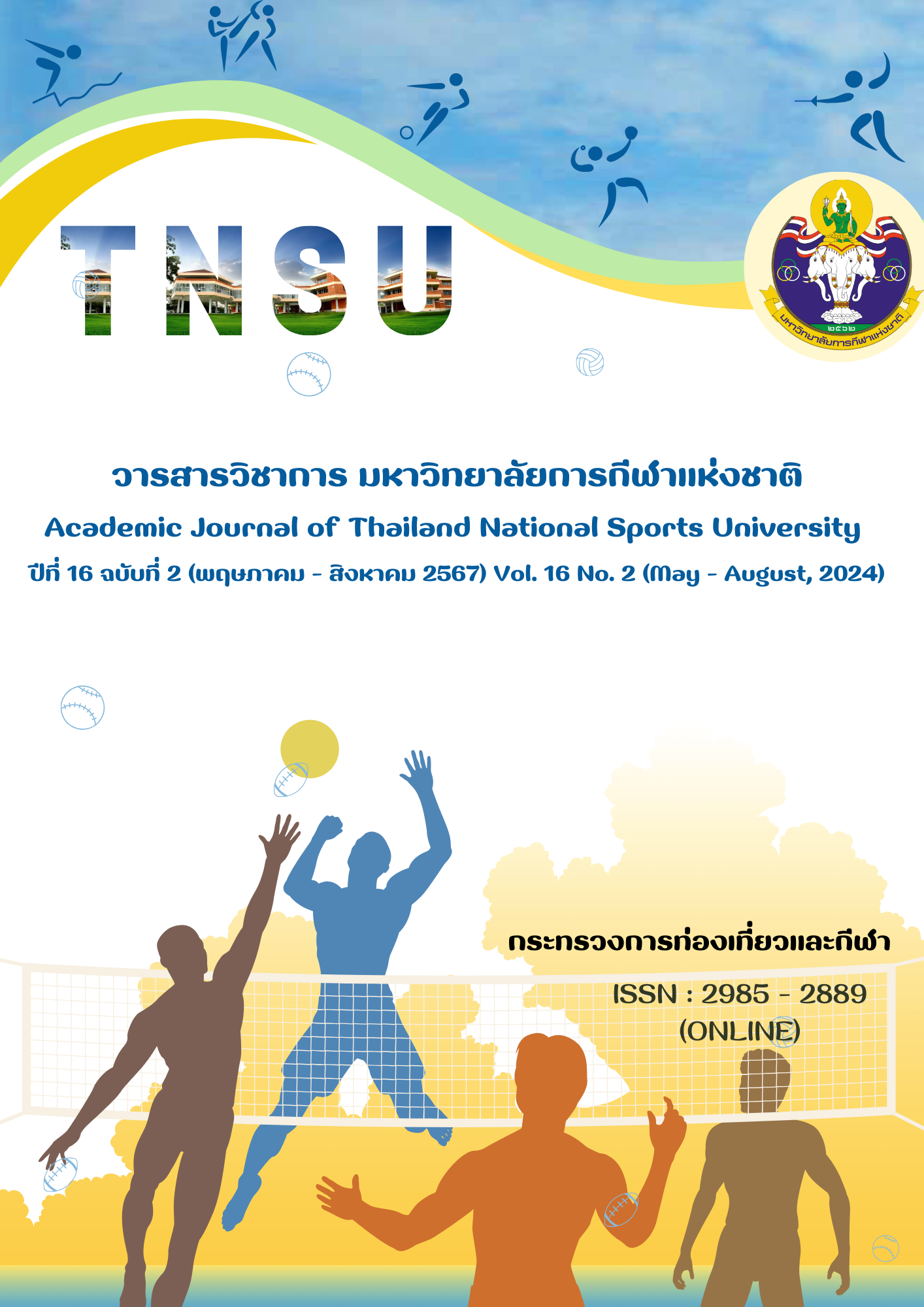THE CONSTRUCTION OF LASER PUSH - UP TESTING MACHINE
Main Article Content
Abstract
The research aimed to create a laser push up test. straight quality confidence and choice the target group used students who are studying at the secondary level. Ramkhamhaeng University Demonstration School in the Swimming Club subject of 30 people obtained from a specific selection. The results of the innovation test of the efficiency of the innovation of the laser push up test showed that innovation was effective in terms of the number of personnel, budget, time spent. It was found that using innovation can result in less personnel use. Budget compared to the longer lifespan on an average yearly basis, innovations cost less. compared to so many personnel to perform a test. and time to test innovations is also less than human testing. When considering the quality of innovation in various fields, it was found the validity in all 5 aspects when considering all averages, found that the instrument used was 0.80 straight. Innovation has the quality of reliability by considering the values of the people who counted and the frequency counted from the innovative machines are equal. and test the multiple choice by alternating between different groups of innovative users to participate in the innovation test. It was found that the values obtained from the staff were counted. and the values counted with innovations are equal.
Article Details

This work is licensed under a Creative Commons Attribution-NonCommercial-NoDerivatives 4.0 International License.
The published article is a copyright of the Academic Journal of Thailand National Sports University. The passage appeared in each article in this academic journal is a perspective of each author which is not related to the journal. Each author is required to be responsible for all components of his/her own article. If there are any mistakes, each author must be responsible for those mistakes on his/her own.
References
Anacha Pienthong. (2012). Creating a count the number for sit – up. The 9th KU KPS National Conference (pp. 2394 – 2401). Thailand.
Department of physical education. (2019). Physical fitness tests for students secondary school (13 - 18 years). Bangkok: Sport science bureau.
Jirayut Aonsri. (n.d.). Characteristics of a good measurement tool. Evaluation Section, Nawamintrachutit Industrial and Community College.
Jittirat Saengloetuthai. (2015). Research instrument. Journal of Graduate students Sakon Nakhon Rajabhat University, 12(58), 13 – 24. Retrieved from https://shorturl.asia/JGl4n
Kittikun Sangnin, & Prasopchai Pasunon. (2018). Reliability, validity, accuracy and precision on exercise physiology research method agreement and measurement error in the physiology of exercise. Veridian E-Journal, Silpakorn University, 5(6), 1 - 19.
Nutchanun Chinpanthana, (2017). Fast normalized cross correlation for real time automatic counting objects system. Science and Technology RMUTT Journal, 7(2), 168 - 182.
Parvinee Boonyaras, & Kachain Dangudom. (2016). Laser spreads beam as line for laboratory: Reflection and refraction of light. Retrieved from http://nuir.lib.nu.ac.th/dspace/bitstream/123456789/617/1/Fulltext.pdf
Pranee Lumbensa, (2016). The quality of measurement and evaluation tools. Yala Rajabhat University, Thailand. Retrieved from https://shorturl.asia/JGl4n


